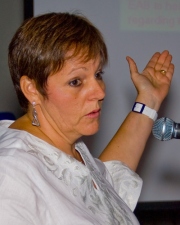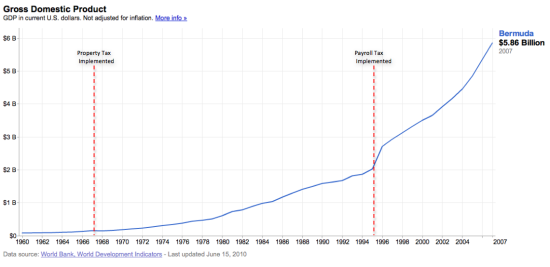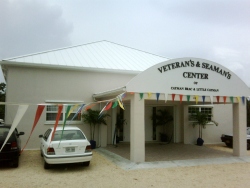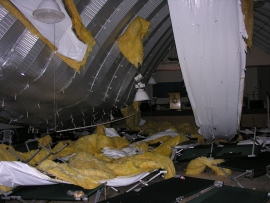Archive for July, 2010

ICTA upholds net neutrality
 (CNS): The use of technology that would give internet service providers (ISPs) the ability of to manage internet traffic, by accelerating or “throttling” particular protocols or applications, has been denied. A public consultation on the use of Deep Packet Inspection (DPI) and similar technologies, which began in July 2009 ended with the Information and Communications Technology Authority (ICTA) determining that the current use of this technology by two ISPs – Digicel and WestTel’s – was in breach of their ICT licences. Similarly, the ICTA found that LIME would also be in breach of its license if it implemented its planned use of DPI.
(CNS): The use of technology that would give internet service providers (ISPs) the ability of to manage internet traffic, by accelerating or “throttling” particular protocols or applications, has been denied. A public consultation on the use of Deep Packet Inspection (DPI) and similar technologies, which began in July 2009 ended with the Information and Communications Technology Authority (ICTA) determining that the current use of this technology by two ISPs – Digicel and WestTel’s – was in breach of their ICT licences. Similarly, the ICTA found that LIME would also be in breach of its license if it implemented its planned use of DPI.
The authority also recommends that changes be made to the ICTA Law in order to significantly restrict the use of DPI in the Cayman Islands.
The ICTA said it had two primary concerns with respect to DPI – privacy and net neutrality. Regarding the former, the authority said, “Not only does DPI permit the examination of packet headers, including source and destination IP addresses (which, in some instances, may also be considered personal information), but allows an ISP to examine the content of an electronic communication. The Authority is not convinced that examination of content is essential for traffic management (or any of the other purposes listed above) and views this practice as an unreasonable invasion of an individual’s privacy.”
Commenting on the threat to net neutrality, the ICTA said that in order to promote online innovation, it is crucial that the Internet remain “neutral. The authority said did not support ISPs granting exclusive or preferential access (higher bandwidth levels) to certain providers or applications selected by the ISP. “The Authority considers that the use of DPI should not be permitted in the Cayman Islands if it undermines net neutrality principles, either directly or indirectly.”
Law firm Appleby submitted that the intent of the ICTA Law is to treat the transmission of data over the Internet in a similar manner as the sending of traditional letters, “No-one would seriously suggest that the Cayman Islands Post Office should open letters and treat them differently according to the type of correspondence they contain. We believethat if DPI had been available at the time the Law was passed, the legislature would not have permitted its use.”
Appleby further noted: “We have serious concerns as to the effect the use of DPI would have on the confidentiality of communications sent to and from Cayman, and the level of trust that clients feel able to place in the integrity of the system. It is notable in this regard that, as far as we are aware no other offshore financial centre deploys DPI. Doing so would therefore risk imposing on Cayman a significant competitive disadvantage.”
In its submission Walkers noted that with the use of DPI, ISPs could attempt to give priority to traffic from specific subscribers based on their type. “This could provide an unfair advantage to certain ISPs and their subscribers over others that do not use DPI or similar technologies. If ISPs begin giving priority to specific types of traffic, this could cause application developers to begin camouflaging their traffic as other types of traffic in order to receive higher priority. In the long-run, this would make DPI less effective.”
LIME maintained that DPI would allow the enforcement of agreements with customerswith respect to download speeds and usage. The telecommunications firm also said it could get a better understanding of the IP traffic profile of its Internet and backbone, make more effective routing of traffic on its Internet network, assist in the development of customized services and billing, and protect the network and the service quality offered from exposure to security threats.
Digicel said that DPI enables an ISP to monitor network traffic usage in real time to meet the ever increasing risk to the services provided. The firm said the value to the provider and the subscriber in prevention of fraudulent attacks on both justifies the use of DPI as a precondition to the provision of the service, though it did acknowledged that DPI can be used to carry out intentional interception of messages sent by a subscriber, but claimed it does not use DPI for these purposes.
WestTel confirmed that it employs equipment to manage its traffic loads efficiently and ensure that the majority of its customers experience expected bandwidth. WestTel noted that the bandwidth allocated to Peer-to-Peer (”P2P”) usage for residential customers is limited to 4 to 12 KB/s upstream and 8 to 150 KB/s downstream. Among corporate customers, this equipment is only used upon request if a corporate customer wishes to manage its internal traffic in a more efficient manner.
All documentation and submissions regarding this public consultation are posted on the ICTA website.

Call for wildlife protection
 (CNS): At the final public meeting hosted by the Department of Environment (DoE) to discuss the New Conservation Law, Cayman Brac residents asked how soon could the law be passed and raised concerns that it did not go far enough. Brackers wanted to know if small areas, such as nesting places of turtles, would be protected, as well as the shrimp hole on the south side, which, it was noted, was being polluted by runoff from the landfill. A rare cactus found only on Cayman Brac that grows by the side of the road is continually mowed down by Public Works Department, and the rock iguana population, already in decline, is further reduced on a regular basis as many are killed on the road. (Left: DoE Director Gina Ebanks-Petrie – Photo by Dennie Warren Jr)
(CNS): At the final public meeting hosted by the Department of Environment (DoE) to discuss the New Conservation Law, Cayman Brac residents asked how soon could the law be passed and raised concerns that it did not go far enough. Brackers wanted to know if small areas, such as nesting places of turtles, would be protected, as well as the shrimp hole on the south side, which, it was noted, was being polluted by runoff from the landfill. A rare cactus found only on Cayman Brac that grows by the side of the road is continually mowed down by Public Works Department, and the rock iguana population, already in decline, is further reduced on a regular basis as many are killed on the road. (Left: DoE Director Gina Ebanks-Petrie – Photo by Dennie Warren Jr)
In addition, Hurricane Paloma in November 2008 had taken a toll on wildlife, it was said; bats owls and tropic birds had all but disappeared, and these species needed additional protection. One resident suggested speed bumps on the south side road to reduce road kill.
So far, the owners of land on the Brac where turtle nests have been found have been co-operative, but residents asked, what if they weren’t? The law will protect large areas but Brackers wanted to know if it will also protect smaller but vitally important areas.
DoE Director Gina Petrie-Ebanks explained that small areas would be covered in the provision to protect critical habitats, which are identified and put on a map for anyone to see.
Under the new conservation law, the DoE would make conservation plans for any species they believed needed protection, and the public would have 28 days to comment before they went into effect. Such plans would allow the DoE to make broad recommendations about the preservation of species. As the law now stands, even for wildlife that is protected, such as the native iguanas, this protection is limited in its scope. Under the new law, the DoE would have the flexibility to make holistic protection plans for endangered and endemic species.
Residents bemoaned the fact that sometimes when land is cleared it is stripped bare, and of particular concern were those areas at the base and the edge of the Bluff since the Brown Boobies nest in the face of the Bluff. The DoE director explained that part of the critical habitat provision would identify the Bluff face (which is owned by the crown) as one such area; the land at the base and the top would remain in private ownership but the management requirements to protect the boobies would be controlled under the new law.
Answering a question as to how long an environmental assessment process would take, Ebanks-Petrie said that currently, when the Central Planning Authority or the Development Control Board process planning applications that require input from the DoE, they aim to do so within 14-days. Since the new law would allow the National Conservation Council to delegate functions to the DoE, she said she is hoping that for straight forward cases the department would still be able to deal with applications in the same way, so the council can deal with the big projects, and the DoE could deal with the smaller projects in a couple of weeks.
Concern for wildlife extended to the ocean and there were calls for more marine parks. It was also suggested that if they were named they would be more marketable – as Bloody Bay has been.
Ebanks-Petrie said that with part of the three year grant that the DoE received from the UK government under the Darwin Initiative they would take a comprehensive look at the marine parks and see if some areas should be extended. The DoE would be holding another round of public meetings to discuss this issue, she said.
MLA Moses Kirkconnell thanked the director and her colleagues for the presentation and said he looked forward to the final draft of the bill. He said the exchange had made his job (debating the issue in the House) much easier.

Humane Society crowded with unwanted pets
 (CNS): The Cayman Islands Human Society is overflowing with unwanted and abandoned dogs and the non-profit organisation is appealing for people to step forward and adopt a pet. News27 reports that there are currently 90 dogs at the shelter, and with few volunteers and limited space at the Humane Society, the animals are in desperate need of help. Shelter liaison, Twyla Escalante, said in some cases people leave the island thinking that they have left their dogs with new owners they think are responsible, but this turns out not to be the case. (Photo courtesy News27)
(CNS): The Cayman Islands Human Society is overflowing with unwanted and abandoned dogs and the non-profit organisation is appealing for people to step forward and adopt a pet. News27 reports that there are currently 90 dogs at the shelter, and with few volunteers and limited space at the Humane Society, the animals are in desperate need of help. Shelter liaison, Twyla Escalante, said in some cases people leave the island thinking that they have left their dogs with new owners they think are responsible, but this turns out not to be the case. (Photo courtesy News27)

Child neglect will be prosecuted, say police
(CNS): Police are warning parents and care-givers who leave children unattended throughout the school holidays that they could end up in court facing charges of neglect. Detective Inspector Christsandra Mitchell of the RCIPS Family Support Unit said: “We have been made aware that some children are being dropped off at local libraries in the mornings, in some instances before the libraries are open for businesses. Some are also being left in these buildings as late as 5.00 p.m., without food or any contact information for parents or care-givers.”
The RCIPS will be following up on every complaint received. We are asking library staff and other members of the community to be vigilant and report any incident or concern you may have regarding the welfare or well-being of a child – whether the child is in a public place or at home alone.
“Many parents/caregivers are seemingly not aware that these infrequent periods of abandonment can lead to criminal investigation,” said DI Mitchell. “The RCIPS will make every effort to bring before the courts persons who neglect children, who it is their duty to protect, to face the consequences of their actions that may amount to a criminal charge.”
Anyone who has any concerns should report the matter to their local police station or the Family Support Unit on 946-9185.

DER teaches labour law for cash
 (CNS): Businesses looking for ways to cut costs by cutting staff can now pay the Department of Employment Relations (DER) to learn the correct way to do so. Realising that interpreting the labour law can be challenging, DER said in a release, department officials have designed a four-hour course to help employers better understand the law, but are charging employers up to $1000 to sign up. The course covers issues such as pre-employment, compliance, termination, employer responsibility, and labour tribunal matters. Content can be personalised, based on each organisation’s need.
(CNS): Businesses looking for ways to cut costs by cutting staff can now pay the Department of Employment Relations (DER) to learn the correct way to do so. Realising that interpreting the labour law can be challenging, DER said in a release, department officials have designed a four-hour course to help employers better understand the law, but are charging employers up to $1000 to sign up. The course covers issues such as pre-employment, compliance, termination, employer responsibility, and labour tribunal matters. Content can be personalised, based on each organisation’s need.
Registration is $1,000 for groups of up to ten individuals, while pricing is negotiable for smaller groups. The registration fee includes all course materials and a completion certificate.
“We know that there are often interpretation issues with specific areas of the law,” DER Acting Director Robert Whittaker (above) explained. “The current economic crisis is forcing many companies to review their bottom lines and cut costs. This often includes staff termination and redundancies. Our intention is, therefore, to help companies understand any areas of the law with which they are unsure.”
Email Locksley Haylock at Locksley.Haylock@gov.ky for more information.

The Real Never Never Land
A local businessman, writing in this month’s Journal, struggles to explain to his 14 year old grand-daughter why her generation will be saddled with a debt run up by successive governments of his. A reader could be forgiven for concluding from this that the author is what political observers would call a "deficit hawk" (political observers themselves, deficit hawks are fiscally conservative beasts, decrying excessive government borrowing on principle).
But reading on, you may be surprised to find, as I was, that the only thing he considers worse than his grand-daughter having to pay for today’s government profligacy, is having to pay for it himself. A principled stance indeed.
You see the article’s author is ardently opposed to tax, comparing the Cayman Islands government to a hungry monster determined to eat you out of house and home. But politics is as full of paradoxes as economics and this particular conundrum is surely as old as parliamentary democracy itself: How do you stop governments over-spending? One method propounded by fiscal conservatives is to "starve the beast".
The so-called "starve the beast" argument goes something like this. Governments spend money like it grows on trees. The only way to stop them spending more money is to not give them any more, that is, by constraining revenues, or taxes as they are better known. There is one tiny problem with this strategy: it doesn’t work. Governments still have access to the same, for all intents and purposes unlimited, reserve of cash no matter how much they raise in revenue.It’s called borrowing. For as long as the British government (bless its cotton socks) is willing to continue increasing the Cayman Islands’ credit limit, trying to stop the government spending money by constraining tax revenue is like trying to stop people drinking liquor on Sundays by closing liquor stores. Hey ho, there’s always the bar.
Citing "readily available statistics", the author reports that the Cayman Islands Government spends 31% of GDP while British government spending is "below 25%". A shocking statistic indeed… if it were true. According to HM Treasury (see page 59), the British government spends 47.3% of GDP. Whilst the mistake is no doubt an innocent one, The Journal itself, purporting to be a respectable business publication, should be ashamed of itself for publishing such egregious misinformation without question.
Even the staunchly ideological Miller Shaw Report disagreed that Cayman government spending was excessive compared to other western economies such as the UK, stating on page 12:
“The Cayman Islands enjoy a modest burden of government compared to most nations. Revenues consume less than 25 percent of economic output, roughly comparable to jurisdictions such as Singapore, Hong Kong, and Liechtenstein. Most developed nations, by contrast, divert larger shares of output to government, while some Nordic nations top the charts, with governments in Denmark and Sweden taking more than 50 percent of economic output.”
Citing the advice of "overseas professionals", the Journal contributor goes on, "Imposing, and then inevitably increasing taxes to paper over the ever-widening cracks will spell the economic death-knell for these islands". A broad statement, but what taxes is he referring to? I can see why his foreign friends might be scared of further fee increases or corporation tax but why would these "overseas professionals" care if Cayman brought in direct personal taxes? If anything, their costs would come down, as our government would no longer rely on them and their clients to pay its bills.
It is a preposterous over-simplification to claim that all taxes are bad for the economy, or society for that matter. Take the Danes, cited by the Miller Shaw report above, whose tax-happy government takes a 50% plus share of GDP in revenue. Perhaps the Danish government will find some comfort in their country being named the world’s happiest by a recent Gallup poll, as well as coming ninth in The Economist magazine’s authoritative 2005 study of national quality of life (among the other high-tax Nordic nations invoked by the Miller Shaw Report, Sweden came fifth, Norway third). Enough to make the most ardent fiscal libertarian pine for the fjords.
The writer offers an anecdote of business leaving the Bahamas after the introduction of nebulous "unattractive business conditions". He doesn’t go into detail, but whatever these new unattractive conditions were, they certainly weren’t direct taxes. The Bahamas have had a payroll tax since 1972. And again, in what way would direct personal taxes constitute "unattractive business conditions"? Perpetually increasing work permit and other business fees are pretty unattractive. Direct personal taxes would have precisely the opposite effect if the government were to continue to try to cut costs and simply rebalance some of the costs currently being borne by the private sector to the general public. And few things are as unattractive to business as an insolvent government.Dubai anyone?
Just look what happened to those other down-and-out financial centres with direct personal taxes such as Bermuda with its annual property and payroll tax and its government spending a whopping 60% of GDP. No wonder Bermuda never amounted to anything after it brought in property tax in 1967 (well, not counting achieving the highest GDP per capita on the planet in 2005). But just look what happened when they brought in a payroll tax! Economic disaster! Right? Wrong. After introducing payroll tax in 1995, Bermuda’s GDP grew a record 35% in a single year (see chart below).
How about Jersey with its 20% income tax? How much louder a "death knell" could you get for a small island than a 20% income tax? A look at the Jersey Finance homepage reveals that the jurisdiction is in all kinds of trouble these days having won a measly four international business accolades in the last year including Best Offshore Centre (Global Investor Awards), International Finance Centre of the Year (STEP), Best International Financial Centre (International Fund & Product Awards) and coming top among offshore jurisdictions in the Global Financial Centres Index. Funny that some of the very same overseas professionals reportedly predicting a tax-induced Caymanian death spiral appear to be doling out awards to an offshore competitor with one of the highest personal tax rates of any so-called tax haven. How their financial sector must rue the day their (solvent) government introduced income tax!
Do taxes, as the author contends, "take money out of circulation in the economy"? This is the kind of economics-is-too-complicated-for-you-to-understand soundbite that is plausible for only as long as you don’t actually think about it. The government doesn’t take the money it raises in taxes and hide it in a giant vault at the base of Mount Trashmore. It spends it, almost entirely in the local economy. In fact, in the hands of the public, money is much more likely to be "taken out of circulation" by being saved or spent overseas. Not that such a fate is a bad thing for your hard-earned dollars, but it is incontrovertibly a bad thing for the local economy.
Is the civil service inefficient? You bet. Governments are inefficient by nature. Is that the same as you and I not getting value for money for our tax dollars? Not necessarily. The Cayman Islands spends an average of around CI$12,000 per resident. It collects from residents less than CI$4,000 on average. The balance is paid by the private sector and tourists. Sacking every single civil servant and completely eliminating capex would reduce government spending to around CI$6,500 per resident. So, under such impossible (or as some would argue, idyllic) conditions, you and I would probably still be getting CI$2 of services for every CI$1 we paid. And who would we accuse of gross inefficiency then?
It is precisely the strategy of demonising taxes in general, and indignantly insisting the government should spend less even though it won’t, that has backed the Cayman Islands government into the corner it is now in, having to borrow money hand over fist and increase private sector "fees" left and right to make ends meet.
Why have so many fund administrators set up and expanded offices in relatively high tax Canada instead of the Cayman Islands? Because the Canadian government doesn’t expect fund administrators to pay for their roads. Canada, like nearly every other developed nation in the world, has the crazy "socialist" notion that public services ought to be paid for by the public.
The ultimate irony is that the best strategy to reduce government spending isn’t constraining revenue, or becoming apoplectic at the mere mention of taxes, it is creating the democratic will to reduce costs by making the electorate pay for the services they receive. The reality is that there will never be any real political will, in the broadest sense, to reduce spending so long as what is being spent is mostly other people’s money (that of private sector shareholders, tourists and government debt-holders).
In any case, our friend need not necessarily worry about his grand-daughter’s financial fate. So long as her peers are as successful scaremongering about taxes in her day as he and his peers have been in ours, neither of them will have anything to worry about.

Officers on patrol discover stolen goods
(CNS): In the early hours of Saturday morning (17 July), officers engaged in mobile patrol duties in the George Town area stopped a suspicious vehicle in South Church Street at about 4.30am. The officers discovered a quantity of stolen property within the Mazda minivan, including a lap top computer, cell phones and a handbag. The two men in the vehicle, aged 18 and 28 years, were arrested on suspicion of burglary. Enquiries revealed that those items and a Hyundai motor car had been stolen from a home in South Church Street a short time earlier. The officers involved in the enquiry traced the stolen vehicle a short distance away.
About 5.00am that morning the householder awoke to find the property missing. As he was telephoning the police to report the matter he was advised that officers had arrested two suspects and that his property had been recovered.
Detective Sergeant Richard Scott is appealing for anyone who may have any information about the crime to contact George Town CID on 949-4222 or the confidential Crime Stoppers number 800-8477(TIPS).

British prime minister raids dormant UK accounts
 (Bloomberg): UK Prime Minister David Cameron announced plans to use “hundreds of millions of pounds” from dormant bank accounts to fund community projects, while Business Secretary Vince Cable said lenders “ripped off” customers. Cameron said he will press ahead with a proposal set out in the coalition government’s program to establish a “Big Society Bank” to finance moves by charitable groups and not-for-profit companies to take over jobs currently done by the government. “These unclaimed assets, alongside the private-sector investment that we will leverage, will mean that the Big Society Bank will over time make available hundreds of millions of pounds of new finance to some of the most dynamic social organizations in our country,” Cameron said in a speech in Liverpool, northwest England, today.
(Bloomberg): UK Prime Minister David Cameron announced plans to use “hundreds of millions of pounds” from dormant bank accounts to fund community projects, while Business Secretary Vince Cable said lenders “ripped off” customers. Cameron said he will press ahead with a proposal set out in the coalition government’s program to establish a “Big Society Bank” to finance moves by charitable groups and not-for-profit companies to take over jobs currently done by the government. “These unclaimed assets, alongside the private-sector investment that we will leverage, will mean that the Big Society Bank will over time make available hundreds of millions of pounds of new finance to some of the most dynamic social organizations in our country,” Cameron said in a speech in Liverpool, northwest England, today.

Truck used to smash & grab
 (CNS): Update 10:15am Monday: Police said Monday morning that an 18-year-old man has been arrested and is in police custody following an early morning “ramraid” at a George Town store yesterday. About 4.20am on Sunday 18 July, a white truck crashed into the door of Boosie Store in Mary Street, George Town. Two men jumped from the truck and grabbed the cash register from the store, and afterwards ran off towards Rock Hole. Police say that officers immediately attended and conducted a search in the area. As a result of the search an 18-year-old man was arrested on suspicion of burglary and is currently in police custody. (Photo by Dennie Warren Jr)
(CNS): Update 10:15am Monday: Police said Monday morning that an 18-year-old man has been arrested and is in police custody following an early morning “ramraid” at a George Town store yesterday. About 4.20am on Sunday 18 July, a white truck crashed into the door of Boosie Store in Mary Street, George Town. Two men jumped from the truck and grabbed the cash register from the store, and afterwards ran off towards Rock Hole. Police say that officers immediately attended and conducted a search in the area. As a result of the search an 18-year-old man was arrested on suspicion of burglary and is currently in police custody. (Photo by Dennie Warren Jr)
The second man involved in the incident has not yet been traced.
The suspects were described as having white t-shirts covering their faces and dressed in black clothing. Detective Constable Colin Pryce is appealing for anyone who may have any information about the crime to contact George Town CID on 949-4222 or the confidential Crime Stoppers number 800-8477(TIPS).

Brac seamen rebuild shelter
 (CNS): An unofficial emergency shelter on Cayman Brac’s Bluff has been rebuilt following its destruction during Hurricane Paloma in 2008. The Cayman Brac and Little Cayman Veteran’s & Seaman’s Society has, for the second time, raised funds to build the shelter, which was officially re-opened on Saturday 17 July, 20 months after the storm. With no reserve funds and no insurance, the V&SS members set about raising the half a million dollars to rebuild, and the society’s president, Roy Walton, said they never doubted at any time that they would do so.
(CNS): An unofficial emergency shelter on Cayman Brac’s Bluff has been rebuilt following its destruction during Hurricane Paloma in 2008. The Cayman Brac and Little Cayman Veteran’s & Seaman’s Society has, for the second time, raised funds to build the shelter, which was officially re-opened on Saturday 17 July, 20 months after the storm. With no reserve funds and no insurance, the V&SS members set about raising the half a million dollars to rebuild, and the society’s president, Roy Walton, said they never doubted at any time that they would do so.
Donations included CI$100,000 from HSBC (Cayman) and $60,000 from the government’s Paloma Relief Fund, as well as $10,000 each from the Maritime Authority of the Cayman Islands, the private Brac Relief Fund, and funds donated by staff at PricewaterhouseCoopers. Phoenix Construction did the construction work for cost plus 5%, and among the individual donations, Linton Tibbetts and thefamily of Captain Charles Kirkconnell made significant contributions.
 The semi-circular, coated steal roof of the first Veteran’s & Seaman’s Centre, though designed to withstand 110mph winds, crumpled as the storm passed about 6:00am on Saturday, 8 November 2008, when it is believed a tornado tore into the shelter, leaving the main hall severely compromised. Approximately 94 people were in the shelter at the time, though no one was seriously injured and everyone was able to cram into the kitchen and bathroom area until the storm passed. (Right: The V&S Center after hurricane Paloma)
The semi-circular, coated steal roof of the first Veteran’s & Seaman’s Centre, though designed to withstand 110mph winds, crumpled as the storm passed about 6:00am on Saturday, 8 November 2008, when it is believed a tornado tore into the shelter, leaving the main hall severely compromised. Approximately 94 people were in the shelter at the time, though no one was seriously injured and everyone was able to cram into the kitchen and bathroom area until the storm passed. (Right: The V&S Center after hurricane Paloma)
Rebuilt almost from the foundation, the reconstructed building sits on the same footprint (96 feet by 45 feet) as the original, built with steel reinforced concrete block and poured concrete. Replacing the steel roof was considered too expensive, so the new roof is a more traditional hip design, with an exterior 6:12 pitch and interior 3:12 pitch. The new doors are all steel and there is now a wheelchair ramp to the south side entrance.
 After the opening, Walton told CNS he was “as happy as a lark” and extremely proud of the members. “We’re a ship that has good crew on board,” he said.
After the opening, Walton told CNS he was “as happy as a lark” and extremely proud of the members. “We’re a ship that has good crew on board,” he said.
The president (right) and Vice President Arlin Tatum (left) said that right after Paloma the S&VS members were discouraged but were determined to rebuild, no matter how long it took. Now that the centre is open they hope that it will be used for functions, for which there is a small charge that goes towards upkeep and fundraising.
The Veterans & Seaman’s Centre was officially opened in May 2003 by the Earl of Wessex.
It is built on land provided by government on a 99-year peppercorn lease on Ashton Reid Drive, close to the Aston Rutty Civic Centre, the largest shelter on Cayman Brac.
 At the reopening, the ribbon was cut by the society president and vice president, MLA Moses Kirkconnell and District Commissioner Ernie Scott. Acting Premier Julianna O’Connor Connolly attended, but because flights were cancelled due to rain, many of the dignitaries and supporters of the V&SS were unable to be there for the occasion. (Right: the interior of the building after Paloma)
At the reopening, the ribbon was cut by the society president and vice president, MLA Moses Kirkconnell and District Commissioner Ernie Scott. Acting Premier Julianna O’Connor Connolly attended, but because flights were cancelled due to rain, many of the dignitaries and supporters of the V&SS were unable to be there for the occasion. (Right: the interior of the building after Paloma)
The society has approximately 115 members on all three islands and in the US. Members either have three years experience at sea or in the military, or are the children of veterans or seamen.
See full list of awards presented at the reopening ceremony.